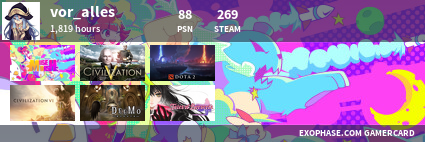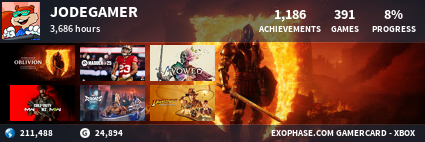TL;DR Vote, Scroll down, look at graphs, and have a cookie.
Let us take a stroll down memory lane to look back on the console industry.
I will be focusing on Nintendo, Sega, Sony, and Microsoft as these companies had the largest industry presence over numerous gaming generations. Honorable mentions to the Atari 2600 and the TurboGrafx-16 for selling ~30 million and ~10 million consoles respectively.
Nintendo’s first entry into dedicated consoles was actually in 1977 during the first generation of gaming systems with the Color TV-Game consoles selling 3 million units. Which is actually more than Atari’s Pong, Coleco’s Telstar, and Magnavox’s Odyssey total console sales combined.
Nintendo’s second entry into console gaming was during the second generation of dedicated systems in 1980 with the Game & Watch handheld console selling 43.4 million consoles. Which again is quite impressive for its time, outselling the Atari 2600, ColecoVision, Odyssey 2, and Intellivision’s total console sales combined.
In 1983, Nintendo entered the 3rd generation of consoles with the Famicom (known in the US as the Nintendo Entertainment System or NES for short). Sega would be joining in this generation as well with the Sega Master System in 1985.
The NES would go on to sell 61.91 million consoles as well as 501.48 million games, where as the SMS would sell 21 million* consoles (*this number includes recent sales of the SMS in Brazil) (total games sales for the SMS unknown). Atari 7800 sold ~1 million consoles as well.
The fourth generation of consoles got more interesting with Nintendo releasing both the Game Boy in 1989 and the SNES in 1990, while Sega released the Sega Genesis in 1988, and the Game Gear in 1990.
The SNES and Game Boy would sell a combined estimate of 113.52 million* consoles (*Game Boy sales not counted after Game Boy Color launch) as well as 680.06 million* games (*Game Boy sales estimated as the larger portion of the Game Boy/Game Boy Color total mixed numbers). The Genesis and Game Gear would sell a combined 40.26 million consoles as well as 214.06 million games.
Fifth generation of consoles had another switch up again, Sega released the Saturn in 1994 as well as the Nomad in 1995. Sony would release the Playstation in 1994. and Nintendo would release the N64 in 1996 and the Game Boy Color in 1998.
Nintendo had a sizable dip in hardware and software sales in the 5th get with the N64 and Gameboy color selling a combined estimate of 87.2 million consoles (*this is an overestimate as it includes all gameboy models after the Game Boy Color launch) along with 425.16 million* games (*Game Boy Color sales estimated as the smaller portion of the Game Boy/Game Boy Color total mixed numbers). Sega Saturn + Nomad sold 9.82 million systems and 47.34 million* games (*Nomad games sales not counted in this figure). Sony was the surprise dark horse of this generation, selling an industry redefining 104.25 million consoles and 962.01 million games.
Sega would be the one to try for a first mover’s advantage in the 6th generation on consoles launching the Dreamcast in 1998, Sony managed to command the largest portion of the market into 6th get gaming with the ps2 in 2000, While Nintendo would not even get off the starting block until 2001 with both the Game Boy Advance and Game Cube launching that year. Microsoft, would push the market to 4 console companies launching the xbox in 2001 as well.
Many issues at Sega led to a quick transition from platform manufacture to 3rd party publisher during this generation, in the end Dreamcast only sold 8.20 million consoles with 64.89 million games to match. Sony’s death grip on the market swelled its sales to Olympian heights with the PS2 selling 157.68 million consoles and an absolute gob-stopping 1661.95 million games. This left scraps for Nintendo, though they still had some growth over their fifth generation efforts with the Gamecube and Game Boy Advance moving 103.25 million consoles with 546.02 million games. Microsoft did fare better than Sega this generation with the Xbox selling 24.65 million consoles and 271.46 million games.
The seventh generation of game systems was the mount everest of hardware and software, and every company found success. Nintendo kicked it off in 2004 with the DS and followed up with the Wii in 2006, Sony rolled the dice with the PSP in 2004 and PS3 in 2006, and Microsoft bolted out of the gate in 2005 with a glisten in the eye looking for the pot of gold at the end of the rainbow.
And there was much rejoicing. Nintendo’s golden geese, the Wii and DS, shattered global records selling a combined 256.06 million consoles and 1810.52 million games. Sony, through the long haul, did very very well, with the PSP and PS3 selling a combined total go 167.67 million consoles and 1278.32 million games. Microsoft also reaped huge rewards of the Xbox360 selling 85.78 million consoles and 1006.47 million games.
The eighth generation of consoles… is still ongoing, so these number will improve some as time goes on, but the bubble has hit a rough lump to say the least. Nintendo lead this time in 2011 with the 3DS and the Wii U in 2012. Sony set their efforts forward in 2011 with the Vita and 2013 with the PS4 launch. Microsoft also joined the fray in 2013 with Xbox1.
Nintendo probably has had the roughest of the plummet down with the Wii U and 3DS combined selling 78.45 million consoles and 377.72 million games at this moment. Sony clocking in right now PS4 and Vita Selling a combined 72.7 million consoles and 449.4 million games as of now. Microsoft with Xbox1 is at 29.24 million consoles sold and 190.41 million games sold.
Here are some pretty charts to show this wall of text in a more simplified manner:
Home + Handheld Consoles Sold Per Generation

Total Home + Handheld Consoles Sold Per Generation

Home + Handheld Software Sold Per Generation

Total Home + Handheld Software Sold Per Generation

Home + Handheld Averaged Attach Rates Per Generation

Total Home + Handheld Averaged Attach Rates Per Generation
We can see a very broad stroke observation of how the console industry has grown since the 70s.
The 8th generation may or may not yet exceed the 6th generation of console and software sales as the market trends can change yet again, but it is very very unlikely that the 7th generational astronomical level of all around successes for consoles will surface again.
And, not to be too optimistic, but this recession in the industry can change direction yet again with the 9th generation of consoles, possibly seeing a small amount of growth over the 8th generation of consoles. Much is unknown of how an Xbox4 or PS5 could perform in the gaming market.
The crux of this possible growth for the 9th generation of consoles will be innovation.
Simply phoning it in and continuing to make home consoles more similar to PCs will push the market to transition away from dedicated consoles to PC gaming even more so than it has during the 8th generation of consoles.
The success Nintendo has been having thus far with its 9 generation of consoles, with the Nintendo Switch, has been a positive indication that innovation in dedicated consoles can still be well received by the market in 2017. Nintendo can continue to expand its market by releasing more significantly varied forms of the Switch, possibly before 2020, to spur further growth of that platform.
And, while Sony and Microsoft may or may not try a hybrid console for their 9th generation consoles, they will need some manner of significantly beneficial differentiation from PC gaming or they will continue to get further marginalized as a closed platform substitute to PC gaming with less and less advantages each passing year.
If there is not enough innovation all around, there is little doubt there will be even more contraction and consolidation of the console market than has been seen thus far in the 8th generation of consoles.
What is your take on the 9th generation console market?
Will Microsoft or Sony exit the industry before they launch another console?
Will a new competitor try to enter the market?
Will 9th gen sell more consoles that the 8th gen?
Will 9th gen sell more games than the 8th gen?
Will 9th gen have a higher attach rate than the 8th gen?
Share your armchair analyst wisdom today!
:P

























































